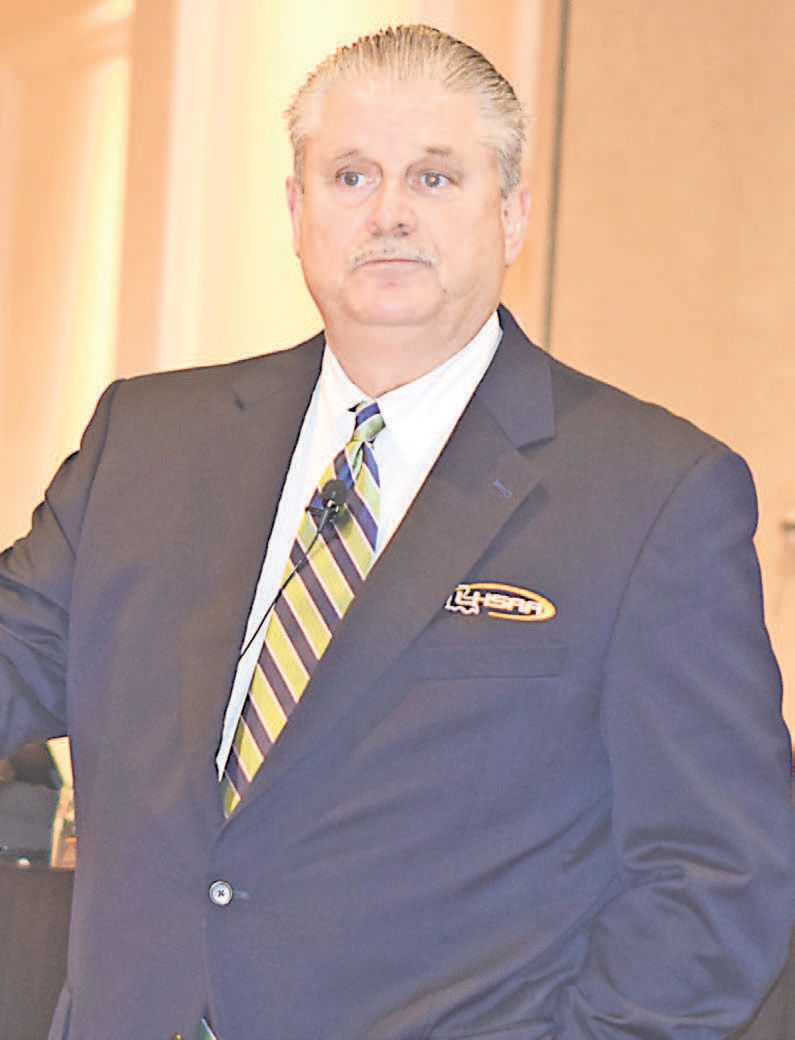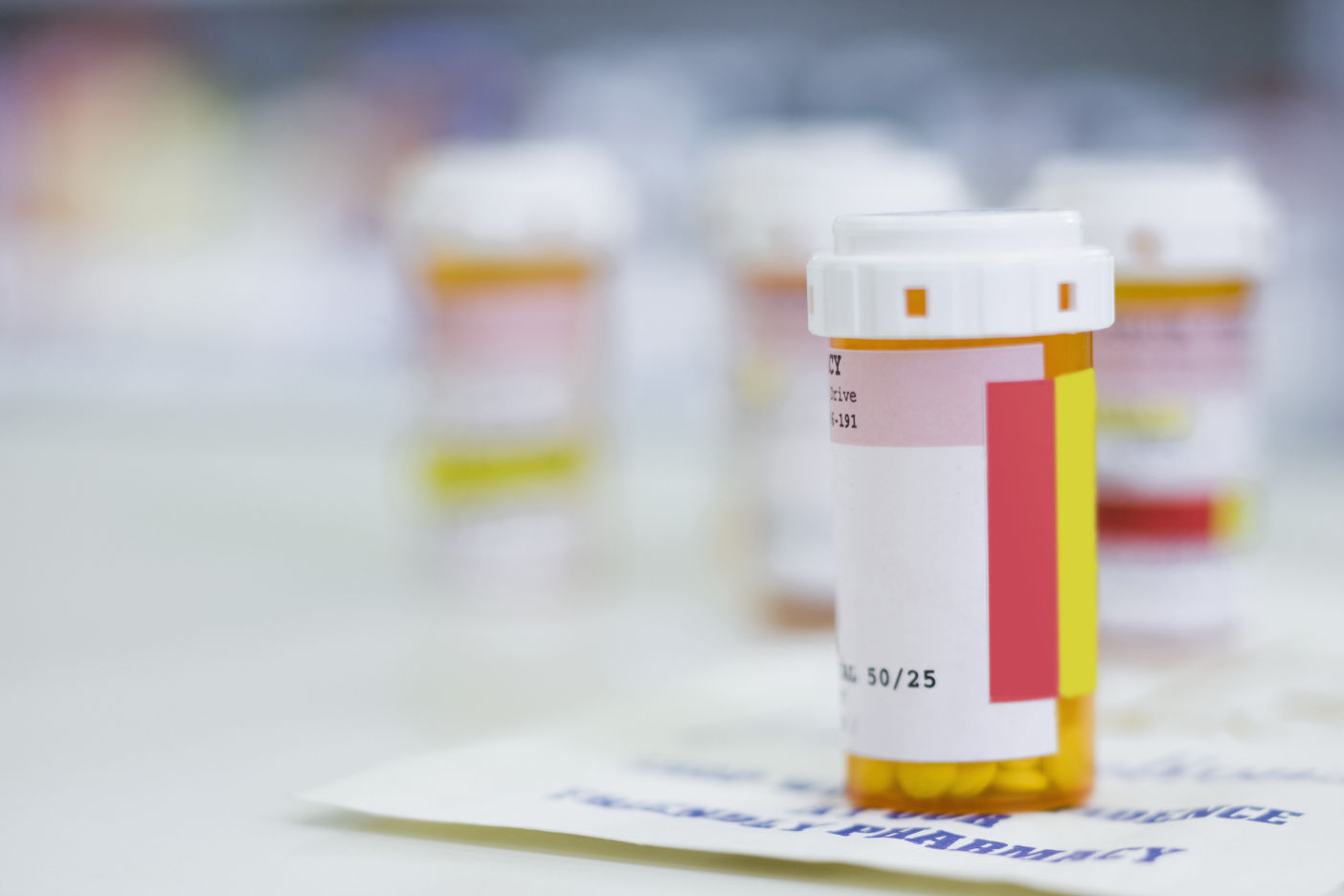
LHSAA makes last-ditch effort toward survival
April 20, 2016
Dularge boat blessing set for Sunday
April 20, 2016Tabitha Cooks is intently watching state legislators debate expanding medical marijuana in Louisiana.
The Houma resident has been doing her part to spread the good news of medical marijuana. She’s taken to Facebook, talks with anyone who has questions and is working on a pamphlet to pass out to inquiring minds.
Cooks’ advocacy is her way of giving back to the treatment that has given her so much. She has been diagnosed with a Sphincter of Oddi dysfunction, a gastrointestinal disorder that results in brutal abdominal pain. Cooks said for two years, she was spending about four to five days per week hospitalized and went through nine surgeries in an effort to fix the issue.
The surgeries didn’t cure the disorder, and Cooks continued to suffer. Her darkest times included her vomiting “for 16 hours straight.” She said her neighbor would bring her daughter to school, as she was in too much pain to make the trip. Cooks’ daughter had to take on responsibility early due to her mother’s unique and hellish situation.
“My daughter was four and five years old when it was really bad. I had to teach her how to cook basic things, like macaroni and cheese and popcorn and ramen noodles,” Cooks said. “Things that we don’t eat, because we live a healthy lifestyle. But I had to teach her that, so she could fend for herself on days that I was too sick to feed my own daughter.”
Cooks tried hundreds of medicines, with none adequately relieving her symptoms.
“They couldn’t get it under control,” she recalled. “In 2010, my doctor said I was going to die if we didn’t get it under control.”
Cooks began to explore alternative options. She read up on medical marijuana, and some of its anti-nausea properties, and proposed its use to her doctor. The doctor obliged, and Cooks started using medical marijuana.
“In the process of all that, we figured out that THC (an active chemical in marijuana) helps. It helps to the point that I no longer have to take medication,” she said.
Cooks has not seen the inside of a hospital for the last two-and-a-half years. The medical marijuana is not a joint she picks up from her local pharmacist. She takes Marinol, a man-made version of THC that comes in a gel capsule. Cooks’s doctor prescribes it, and she picks it up from a Walgreen’s.
However, Cooks has found that pure THC can upset her stomach, which is an issue for someone with a gastrointestinal condition. She instead orders products containing cannabidiol, or CBD, another active cannabinoid in marijuana. CBD is not psychoactive, and some studies have shown it to have therapeutic effects. She has ordered CBD oils, which are not considered illegal by the FDA, from a company in California in an effort to find an even better treatment than Marinol.
As Cooks promotes medical pot’s use on the local level, legislators in Baton Rouge are considering whether to open up the medical marijuana industry in Louisiana.
Under current law, only three conditions (cancer, glaucoma or spastic quadriplegia) allow patients to legally get medical marijuana in Louisiana. The law also allows other conditions to be considered by the Louisiana Board of Pharmacy.
SB 271, presented by Sen. Fred Mills, R-New Iberia, would expand the law to include more debilitating medical conditions, such as Crohn’s Disease, HIV/AIDS and epilepsy.
The Senate Health and Welfare Committee, which Mills chairs, sent it to the Senate floor in recent days for additional debate.
A state medical marijuana advocacy organization has taken to estimating what passage of Mills’ law could look like economically. The Louisiana Cannabis Association teamed with the Marijuana Policy Group from Denver, Colorado, to conduct a study of how much more money the medical marijuana market would generate if the list of conditions is expanded.
The study estimated Louisiana’s current market to be between $12 and $15 million per year. By adding seven conditions, many similar to Mills’ bill, and including patients with chronic pain, the pro-marijuana study estimates the market could be worth anywhere from $204 million to $334 million annually.
In a release announcing the study, LCA spokesperson Jesse McCormick said growing the market would be a boon for the state in both finances and health.
“Medical marijuana will dramatically improve the lives of many in Louisiana who suffer from debilitating illnesses. At a time in our state when we are raising taxes while cutting health care and higher education, creating a viable medical marijuana market is an easy decision,” McCormick said.
Rep. Tanner Magee, a Republican from Houma, is presenting HB 1043, a bill that would expand the medical marijuana marketplace. Currently, Louisiana can only allow 10 dispensary licenses and one cultivation license in the entire state. Magee’s bill would remove the limit on dispensary licenses the state could issue. It was slated to be heard by the House Health and Welfare Committee last Wednesday, but he tabled it to be heard at a later meeting. McCormick supports lifting the license limits. He said the restricted market kills competition and could make for unsavory business.
“It just leads to corruption. And not that that was the intent, but that’s the unintended consequence of not allowing the marketplace to develop. At least making it open enough so you’re not putting such a large amount of value on just 11 different licenses,” McCormick said.
While supporters make a push to open up the market, a local sheriff is joining his colleagues in avoiding a hardline stance on a complex and developing issue. Terrebonne Parish Sheriff Jerry Larpenter said he and other Louisiana sheriffs have found the issue challenging.
“I am not a doctor and I don’t have a clue as far as what they would pass,” he said. “We are not supporting it and not fighting it. Last year, the Louisiana Sheriff’s Association voted to support medical marijuana in a pill form. This year, the association is staying neutral because there are findings now that nobody has proven medical marijuana will work. We don’t know about medical applications, but we are definitely against recreational use.”
The House Agriculture, Forestry, Aquaculture and Rural Development Committee heard two proposals related to the medical marijuana industry. HB 1099 would set up a fee for the production of therapeutic marijuana. HB 1085 would grant LSU and Southern University the first chance to develop pilot programs to study the cultivation of medical marijuana for academic or agricultural research.
Rep. Jerry Gisclair, a Republican from Galliano, said he would not support the bills on the House floor. He opposes public universities cultivating medical marijuana and selling it to dispensaries for commercial purposes.
“Why is it we’re taking two higher ed facilities and all of a sudden we’re setting them up to be a manufacturing facility? And I just had some reservations on LSU and Southern becoming a grower of the product versus a private-license facility,” he said.
Gisclair understands that the proposed laws would not put raw marijuana that can be smoked on the medical market, but he still has reservations about the schools cultivating a controlled substance and commercializing it.
“You’re going to convert an education facility to now have the responsibility of manufacturing a product?” he asked.
McCormick said the laws’ progress through committees were promising.
“For people that have epilepsy, people that have seizure-relate diseases, people that have fibromyalgia, who are suffering from cancer, who are suffering from these terrible disease states – and even people suffering from chronic pain – it just would be a life-changer for them,” he said. •











